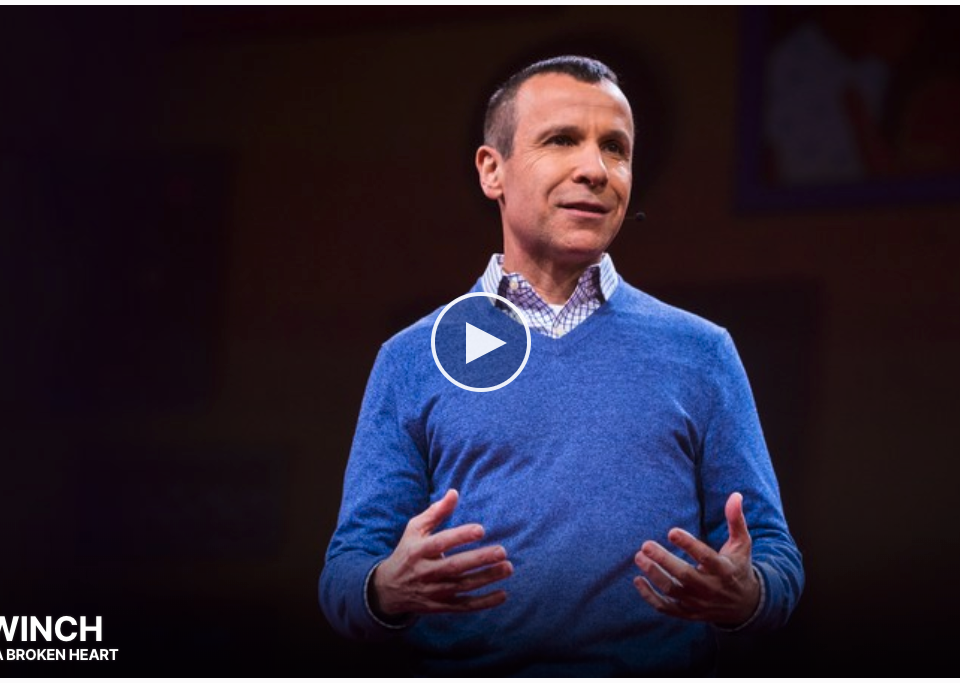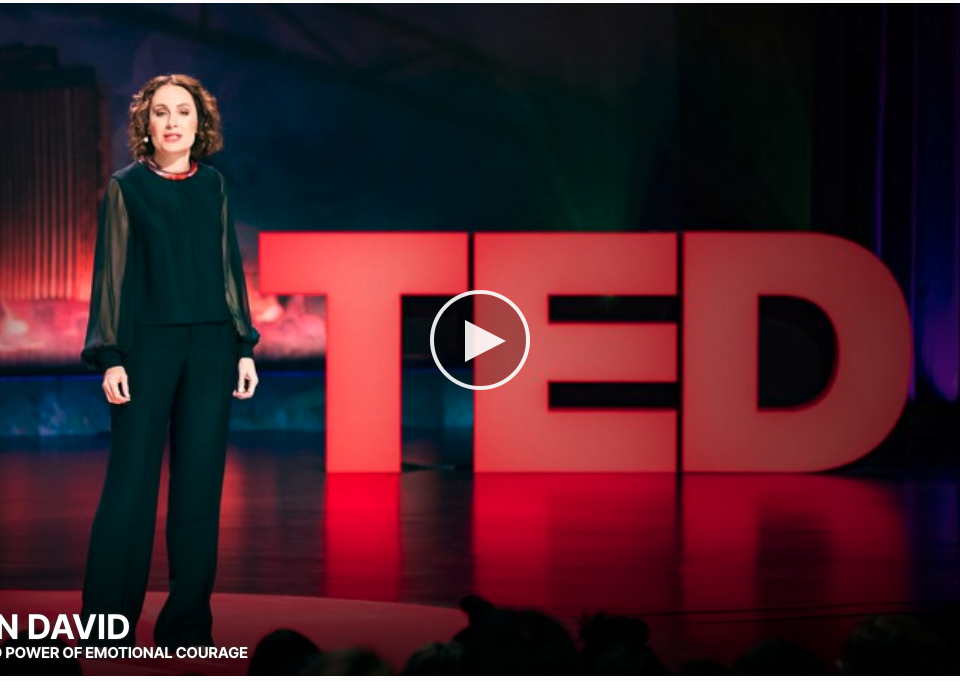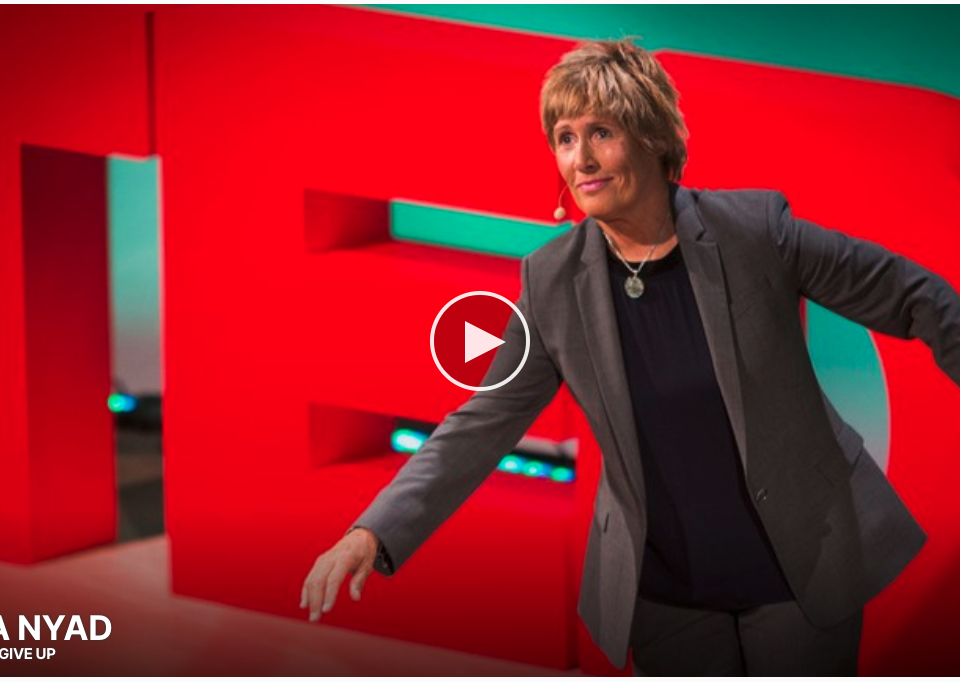
Compulsive Internet disorder
26 de fevereiro de 2020
Why Baby Boomers May Never Get Old
2 de março de 2020Hi. I’m here to talk to you about the importance of praise, admiration and thank you, and having it be specific and genuine.
And the way I got interested in this was, I noticed in myself, when I was growing up, and until about a few years ago, that I would want to say thank you to someone, I would want to praise them, I would want to take in their praise of me and I’d just stop it. And I asked myself, why? I felt shy, I felt embarrassed. And then my question became, am I the only one who does this? So, I decided to investigate.
I’m fortunate enough to work in the rehab facility, so I get to see people who are facing life and death with addiction. And sometimes it comes down to something as simple as, their core wound is their father died without ever saying he’s proud of them. But then, they hear from all the family and friends that the father told everybody else that he was proud of him, but he never told the son. It’s because he didn’t know that his son needed to hear it.
So my question is, why don’t we ask for the things that we need? I know a gentleman, married for 25 years, who’s longing to hear his wife say, “Thank you for being the breadwinner, so I can stay home with the kids,” but won’t ask. I know a woman who’s good at this. She, once a week, meets with her husband and says, “I’d really like you to thank me for all these things I did in the house and with the kids.” And he goes, “Oh, this is great, this is great.” And praise really does have to be genuine, but she takes responsibility for that. And a friend of mine, April, who I’ve had since kindergarten, she thanks her children for doing their chores. And she said, “Why wouldn’t I thank it, even though they’re supposed to do it?”
So, the question is, why was I blocking it? Why were other people blocking it? Why can I say, “I’ll take my steak medium rare, I need size six shoes,” but I won’t say, “Would you praise me this way?” And it’s because I’m giving you critical data about me. I’m telling you where I’m insecure. I’m telling you where I need your help. And I’m treating you, my inner circle, like you’re the enemy. Because what can you do with that data? You could neglect me. You could abuse it. Or you could actually meet my need.
And I took my bike into the bike store– I love this — same bike, and they’d do something called “truing” the wheels. The guy said, “You know, when you true the wheels, it’s going to make the bike so much better.” I get the same bike back, and they’ve taken all the little warps out of those same wheels I’ve had for two and a half years, and my bike is like new. So, I’m going to challenge all of you.I want you to true your wheels: be honest about the praise that you need to hear. What do you need to hear? Go home to your wife — go ask her, what does she need? Go home to your husband — what does he need? Go home and ask those questions, and then help the people around you.
And it’s simple. And why should we care about this? We talk about world peace. How can we have world peace with different cultures, different languages? I think it starts household by household, under the same roof. So, let’s make it right in our own backyard. And I want to thank all of you in the audience for being great husbands, great mothers, friends, daughters, sons. And maybe somebody’s never said that to you, but you’ve done a really, really good job. And thank you for being here, just showing up and changing the world with your ideas.
Thank you.
Texto em Português:
Olá. Estou aqui para falar sobre a importância do elogio, da admiração e do agradecimento, e que ele seja específico e verdadeiro.
E isso me interessou porque percebi em mim mesma à medida que crescia e até há alguns anos, que eu gostaria de agradecer a alguém, gostaria de elogiar as pessoas, gostaria de ser elogiada por elas,e eu simplesmente travava. E eu me perguntava, por quê? Ficava tímida, envergonhada. Aí a pergunta se transformou em: será que sou a única que se sente assim? Então decidi investigar.
Por coincidência, eu trabalho numa clínica de reabilitação, e vejo pessoas enfrentando seus vícios em questão de vida ou morte. E, às vezes, tudo se resume a coisas tão simples como uma mágoa profunda porque o pai morreu sem ter dito o quanto se orgulha delas. Mas então elas ouvem de toda a família e amigos que o pai dizia a todos que se orgulhava dele, mas nunca o disse a seu filho.Talvez porque não sabia que seu filho precisava ouvir.
E minha pergunta é: por que não pedimos as coisas que queremos? Conheço um senhor casado há 25 anos que anseia por ouvir sua esposa dizer: “Obrigada por sustentar o lar para que eu possa ficar com as crianças”, mas ele nunca pediu. Conheço uma mulher que é boa nisso. Uma vez por semana ela diz a seu marido: “Queria um agradecimento por tudo que fiz na casa e com as crianças.” E ele diz: “Ah, muito bem, muito bem.” E o elogio precisa ser mesmo verdadeiro, mas ela se responsabiliza por pedi-lo. April, uma amiga minha desde o jardim de infância, agradece a seus filhos por terminarem suas tarefas. E diz: “Por que não agradecer, mesmo que seja obrigação deles?”
A pergunta é: por que bloqueio isso? Por que as pessoas bloqueiam isso? Por que consigo dizer que quero meu filé ao ponto, que quero sapatos 36, mas não consigo dizer: “Você poderia me fazer um elogio?” E é porque estou lhe dando informações muito íntimas. Estou mostrando minhas inseguranças. Estou dizendo que preciso de sua ajuda. E estou lhe tratando, uma pessoa íntima,como se fosse um inimigo. O que você pode fazer com essa informação? Você pode me ignorar.Pode abusar dessa informação. Ou pode satisfazer minha vontade.
Levei minha bicicleta para o conserto e eles fazem uma coisa que chamam de “centrar” as rodas. O cara disse: “Quando você centra as rodas, sua bicicleta fica muito melhor.” Peguei minha bicicleta de volta, eles tinham desempenado as rodas. Tenho a bicicleta há dois anos e meio, e agora ela parece nova. Então, vou propor um desafio a todos vocês. Eu quero que vocês “centrem” suas rodas: sejam honestos sobre o elogio que precisam ouvir. O que precisam ouvir? Em casa, perguntem a suas esposas o que elas precisam. Em casa perguntem, o que seus maridos precisam? Vão para casa, façam essas perguntas e ajudem as pessoas ao seu redor.
É simples. Por que devemos nos preocupar com isso? Falamos de paz mundial. Como podemos ter paz mundial com culturas e línguas diferentes? Acredito que devemos começar uma casa por vez, sob o mesmo teto Então vamos começar em nossos próprios lares. E eu gostaria de agradecer a todos na plateia por serem ótimos maridos, ótimas mães, amigos, filhas, filhos. Talvez nunca tenham dito isso a vocês, mas estão fazendo um excelente trabalho. E obrigada por estarem aqui, por terem vindo e por mudarem o mundo com suas ideias.
Obrigada.





